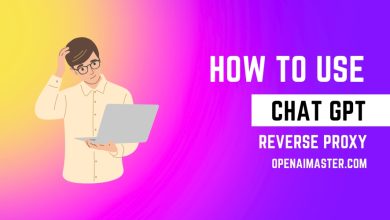“`html
Contents
- 1 Why ChatGPT Outshines Traditional Search Engines in the AI Era
- 2 The Limitations of Traditional Search Engines
- 3 ChatGPT: A Conversational AI Revolution
- 4 The Power of Generative AI in Transforming Search
- 5 Challenges and Considerations
- 6 Conclusion: Embracing the AI-Powered Future of Information
- 7 Frequently Asked Questions
- 8 Interesting Facts
- 9 SEO Meta Description
Why ChatGPT Outshines Traditional Search Engines in the AI Era
In a world increasingly driven by artificial intelligence, the way we access and interact with information is undergoing a profound transformation. For years, traditional search engines like Google have been our go-to resources for finding answers. But a new contender has emerged, leveraging the power of generative AI: ChatGPT. While search engines excel at indexing and presenting vast amounts of information, ChatGPT offers a more dynamic, conversational, and, arguably, intelligent approach. This article explores why ChatGPT is rapidly gaining ground and how it’s reshaping the landscape of information retrieval in the AI era.
The Limitations of Traditional Search Engines
Traditional search engines operate by crawling the web, indexing content, and presenting users with a list of links based on keyword relevance. While incredibly powerful, this method has inherent limitations:
- Information Overload: Search results often return a massive number of links, requiring users to sift through numerous websites to find the specific information they need. This can be time-consuming and overwhelming.
- Lack of Contextual Understanding: Search engines primarily focus on keywords, which can lead to irrelevant results if the search query is ambiguous or requires nuanced understanding. They struggle with understanding the intent behind the query.
- Passive Information Retrieval: Users are presented with links and must actively extract the relevant information themselves. This involves reading, analyzing, and synthesizing information from multiple sources.
- Limited Interactivity: Search engines are primarily one-way communication tools. Users input a query and receive a list of results. There’s little opportunity for follow-up questions or interactive exploration of the topic.
The Rise of Semantic Search
Search engine optimization has moved beyond keyword stuffing to prioritize semantic search. Semantic search algorithms attempt to understand the meaning and context of a query, providing more relevant results. While this is an improvement, traditional search engines still primarily rely on linking to external sources rather than providing direct answers.
ChatGPT: A Conversational AI Revolution
ChatGPT, developed by OpenAI, represents a paradigm shift in how we interact with information. It’s a large language model (LLM) trained on a massive dataset of text and code, enabling it to generate human-like text, answer questions, and engage in conversations. Here’s why ChatGPT is a game-changer:
- Direct and Concise Answers: ChatGPT can provide direct answers to questions, eliminating the need to sift through multiple websites. It synthesizes information from its training data to provide a comprehensive and concise response.
- Contextual Understanding: Thanks to its advanced natural language processing (NLP) capabilities, ChatGPT can understand the context of a query and provide more relevant and accurate answers. It remembers previous interactions within a conversation, enabling a more natural and intuitive dialogue.
- Active Information Generation: ChatGPT doesn’t just present links; it generates original content based on the user’s query. This can include summaries, explanations, creative text formats, and even code.
- Interactive and Conversational: ChatGPT allows for interactive conversations. Users can ask follow-up questions, request clarifications, and explore different aspects of a topic in a dynamic and engaging way.
- Personalized Experience: While still developing, ChatGPT is capable of learning from user interactions and tailoring its responses to individual preferences and knowledge levels. This can lead to a more personalized and effective learning experience.
Beyond Information Retrieval: Creative Applications
ChatGPT’s capabilities extend far beyond simple information retrieval. It can be used for a wide range of creative tasks, including writing stories, poems, scripts, and even composing music. Its ability to generate different creative text formats makes it a powerful tool for content creation and innovation.
The Power of Generative AI in Transforming Search
The underlying technology powering ChatGPT – generative AI – is fundamentally changing the nature of search. Instead of simply retrieving existing content, generative AI can create new content on demand, tailored to the specific needs of the user. This has several key implications:
- Reduced Information Overload: By providing direct answers and summaries, generative AI helps users overcome the problem of information overload.
- Improved Accuracy and Relevance: Generative AI can leverage its vast knowledge base to provide more accurate and relevant answers.
- Enhanced Learning Experience: The interactive and conversational nature of generative AI makes learning more engaging and effective.
- Increased Productivity: By automating content creation tasks, generative AI can free up users to focus on more strategic and creative work.
AI-Powered Search Engines: The Future of Information Retrieval?
Major search engines are already integrating generative AI into their platforms. This suggests that the future of search will likely involve a hybrid approach, combining the strengths of traditional search with the capabilities of generative AI. We can expect to see search engines that can not only provide links to relevant websites but also generate summaries, answer questions, and engage in conversations with users.
Challenges and Considerations
While ChatGPT and other generative AI models offer tremendous potential, it’s important to acknowledge the challenges and considerations associated with their use:
- Accuracy and Bias: Generative AI models are trained on vast datasets, which may contain inaccuracies or biases. This can lead to the generation of inaccurate or biased information.
- Hallucinations: Generative AI models can sometimes “hallucinate” information, making up facts or citing non-existent sources.
- Lack of Transparency: The inner workings of generative AI models are often opaque, making it difficult to understand how they arrive at their conclusions.
- Ethical Concerns: The use of generative AI raises ethical concerns related to plagiarism, misinformation, and the potential displacement of human workers.
Addressing these challenges is crucial to ensuring that generative AI is used responsibly and ethically. As the technology continues to evolve, it’s important to develop safeguards and guidelines to mitigate these risks.
Conclusion: Embracing the AI-Powered Future of Information
ChatGPT represents a significant leap forward in how we access and interact with information. While traditional search engines will continue to play a vital role, the rise of generative AI is transforming the landscape of information retrieval. By offering direct answers, contextual understanding, and interactive conversations, ChatGPT is empowering users to learn, create, and innovate in new ways. As AI technology continues to advance, we can expect to see even more sophisticated and personalized information experiences that revolutionize the way we interact with the world.
Ready to explore the power of AI? Try ChatGPT today and discover a new way to access and interact with information!
Frequently Asked Questions
What is ChatGPT?
ChatGPT is a large language model chatbot developed by OpenAI. It can generate human-like text, answer questions, and engage in conversations on a wide range of topics.
How is ChatGPT different from a traditional search engine?
Traditional search engines provide a list of links to websites, while ChatGPT generates original content based on the user’s query, providing direct answers and engaging in interactive conversations.
Are the answers provided by ChatGPT always accurate?
While ChatGPT is trained on a massive dataset, it can sometimes generate inaccurate or biased information. It’s important to verify the information provided by ChatGPT with other sources.
Can ChatGPT replace search engines entirely?
It is unlikely ChatGPT will entirely replace traditional search engines. The future likely involves a hybrid approach, combining the strengths of both technologies.
What are the ethical considerations of using ChatGPT?
Ethical considerations include accuracy, bias, plagiarism, misinformation, and potential job displacement.
Interesting Facts
ChatGPT can be used to generate different creative text formats, such as poems, code, scripts, musical pieces, email, letters, etc.
The training data for ChatGPT includes a vast amount of text and code from the internet, books, and other sources.
ChatGPT’s capabilities are constantly evolving as OpenAI continues to refine and improve the model.
Some studies suggest that using AI tools like ChatGPT can significantly improve productivity and efficiency in various tasks.
ChatGPT is based on the GPT (Generative Pre-trained Transformer) architecture, which is a type of neural network designed for natural language processing.
SEO Meta Description
Discover why ChatGPT is revolutionizing information access! Learn how it surpasses traditional search engines with AI-powered answers & conversational learning.
“`




